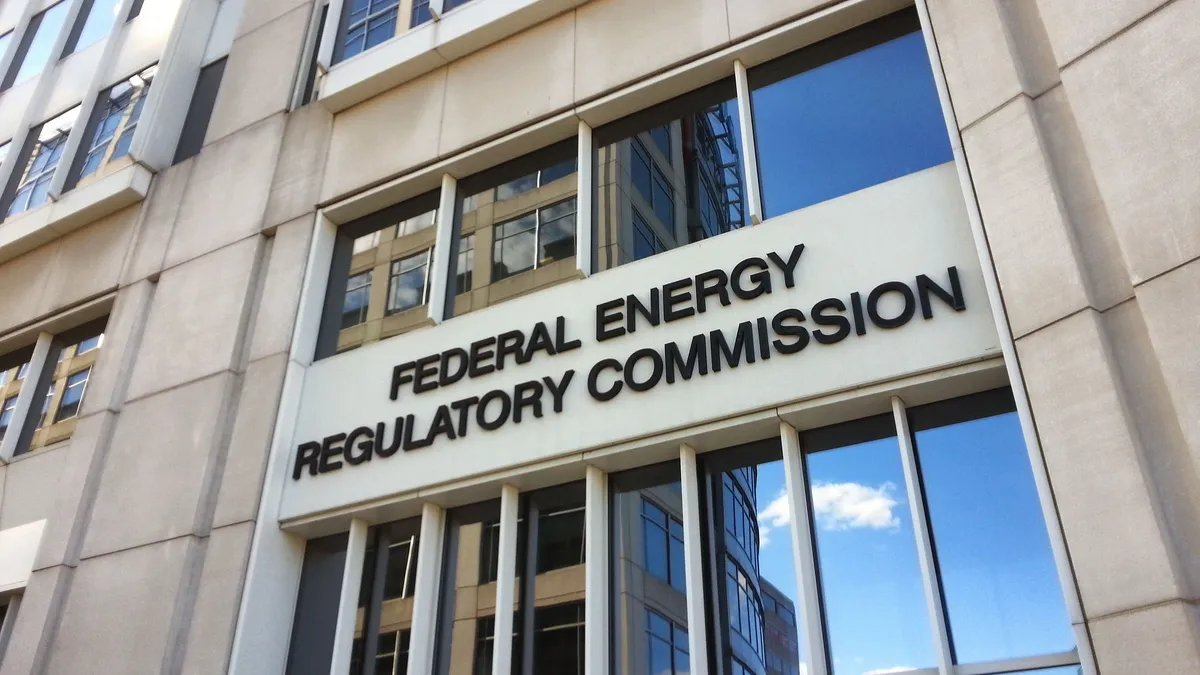Dive Brief:
- The Federal Energy Regulatory Commission has completed a review aimed at identifying regulations that place a burden on the energy industry and may be holding back economic development, in response to a March executive order signed by President Trump.
- FERC's report, published in the Nov. 1 Federal Register, identified nine agency actions that "potentially materially burden the development or use of domestic energy resources." Most of these were focused on hydropwer licensing.
- Both the Environmental Protection Agency and Department of Energy have also completed agency reviews to reduce regulatory burdens.
Dive Insight:
On the whole, FERC's review turned up relatively few regulations potentially holding up development. But the agency did focus on a few — particularly preapplication requirements that may not always be necessary.
For hydropower licensing and both liquefied natural gas and natural gas transportation facility siting programs, FERC said the review process "revealed potentially burdensome agency actions related to regulations promulgated by the commission." For electric capacity markets and generator interconnection, the review revealed "potentially burdensome agency actions related to Commission rulemaking orders and case-specific orders, which typically did not result in the promulgation of regulations."
For hydroelectric siting, the final report identified three areas where potential material burdens may exist: licensing processes; exemption processes; and determinations on deficient applications. Among the suggestions would be to make the commission's Integrated Licensing Process voluntary rather than mandatory.
"The majority of agency actions relating to the siting and construction of interstate natural gas transportation and LNG facilities do not materially burden the transportation or delivery of domestically produced natural gas," FERC determined.
The agency said that the prefiling requirements on LNG facilities may be a burden on some projects "in terms of the potential delay and costs associated with the process." However, FERC said it would not recommend any changes to regulations because it did not want to segment natural gas projects from LNG.
"Without using the pre-filing process for related jurisdictional natural gas facilities, delays could occur during the application review, when issues are first identified and need resolution," The commission said. "Thus, although this regulation may result in delays or additional costs to the applicant early on in a project’s development, its overall result is a more timely application review by considering all issues regarding a project concurrently."
FERC's report did not review agency actions involving several sectors, including: oil and natural gas pipeline rates; electric energy and ancillary service rates and market policies; electric transmission rates; demand response resources; mergers; enforcement; reliability; backstop transmission siting authority; and the Public Utilities Regulatory Policies Act.
The EPA review identified four rules for reform, including New Source Review and the National Ambient Air Quality Standards. The agency also wants to restart the Smart Sectors initiative and take a closer look at the impact of regulation on employment.














